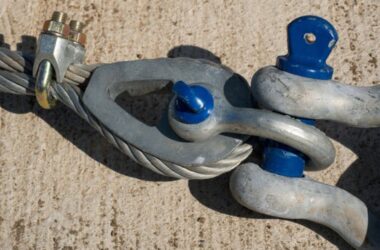Experiencing car acceleration problems can be frustrating and concerning. Whether your car is sluggish, hesitates during acceleration, or fails to reach its full potential, these issues can impact your driving experience and vehicle performance. In this troubleshooting guide, we will explore how to fix car acceleration problems to get your car running smoothly again.
How Does Car Acceleration Work?

Understanding the basics of car acceleration is crucial in diagnosing and fixing problems. Pressing the accelerator pedal sends a signal to the engine control unit (ECU), which regulates fuel and air intake to generate power. The engine’s combustion process converts the fuel and air mixture into energy, propelling the car forward. However, when issues arise, the acceleration may become compromised.
Now, regarding your question about do fender flares cause rust, fender flares themselves do not cause rust. However, improper installation or damage to fender flares can create conditions where rust can develop. If fender flares are not installed correctly or if they become damaged, moisture and debris can get trapped between the fender flare and the body of the car. Over time, this trapped moisture can lead to corrosion and rust formation. To prevent this, it’s important to ensure proper installation of fender flares and regularly inspect them for any signs of damage. Additionally, maintaining good overall car care practices, such as regular washing and waxing, can help protect the vehicle’s body from rust and corrosion.
Common Symptoms of Car Acceleration Problems
Identifying the symptoms associated with acceleration problems is the first step in diagnosing the issue. Here are some common signs to watch out for:
- Sluggish Acceleration: Is your car slow to respond when you press the gas pedal?
- Hesitation: Does your car hesitate or stumble before accelerating?
- Stalling: Does your car stall or shut off unexpectedly during acceleration?
- Lack of Power: Is your car struggling to reach higher speeds or struggling uphill?
- Engine Misfire: Does the engine sputter or jerk during acceleration?
- Reduced Fuel Efficiency: Are you noticing a sudden decrease in your car’s fuel efficiency?
How to Fix Car Acceleration Problems
Check for Fuel System Issues
A properly functioning fuel system is essential for efficient acceleration. Here’s what you can do:
- Inspect the Fuel Filter: A clogged filter can restrict fuel flow, leading to poor acceleration. Replace the filter if necessary.
- Clean the Fuel Injectors: Deposits can accumulate in the fuel injectors, affecting their performance. Consider using a fuel injector cleaner or have them professionally cleaned.
- Verify the Fuel Pump: A failing fuel pump can result in insufficient fuel reaching the engine. Check the fuel pressure and consider replacing the pump if needed.
Examine the Air Intake System
The air intake system is vital in delivering oxygen to the engine. Ensure it is functioning optimally:
- Inspect the Air Filter: A dirty or clogged air filter can limit airflow, hampering acceleration. Replace the air filter regularly to maintain proper engine performance.
- Check for Vacuum Leaks: Leaks in the vacuum hoses or intake manifold can disrupt the air-to-fuel ratio. Inspect for cracks or loose connections and repair or replace affected parts.
Evaluate the Ignition System
A faulty ignition system can cause misfires and affect acceleration. Consider the following steps:
- Inspect the Spark Plugs: Worn or fouled spark plugs can lead to poor combustion, resulting in sluggish acceleration. Replace the spark plugs as recommended by the manufacturer.
- Check the Ignition Coils: Malfunctioning ignition coils can cause misfires. Test the coils and replace any that are faulty.
- Examine the Ignition Timing: Incorrect ignition timing can affect acceleration. Consult your car’s manual or a professional to ensure proper timing.
Address Transmission Issues
Problems with the transmission can significantly impact acceleration. Consider the following:
- Check Transmission Fluid: Low or dirty transmission fluid can cause shifting problems and hinder acceleration. Refer to your car’s manual for proper fluid levels and change intervals.
- Inspect the Transmission Filter: A clogged filter can restrict fluid flow and affect gear changes. Replace the filter if necessary.
- Seek Professional Help: If you suspect a more serious transmission issue, such as a failing torque converter or slipping gears, consult a professional mechanic.
Test the Throttle Position Sensor (TPS)
The TPS is crucial in relaying throttle position information to the ECU. A malfunctioning TPS can cause acceleration problems. Here’s what you can do:
- Use a Multimeter: Test the TPS using a multimeter to ensure it functions within the specified range. Replace the sensor if it is faulty.
- Clean the Throttle Body: Deposits can accumulate on the throttle body, affecting sensor readings. Clean it using a throttle body cleaner for improved performance.
Conclusion
Experiencing car acceleration problems can be worrisome, but you can identify and fix these issues with the right knowledge and troubleshooting steps. By checking the fuel system, air intake system, ignition system, transmission, and throttle position sensor, you can address common acceleration problems and restore your car’s performance. Remember, regular maintenance and timely repairs are essential to ensure smooth acceleration and prolong the lifespan of your vehicle.
You may like to read Small Business Strategy Examples: Tips to Growth and Success






